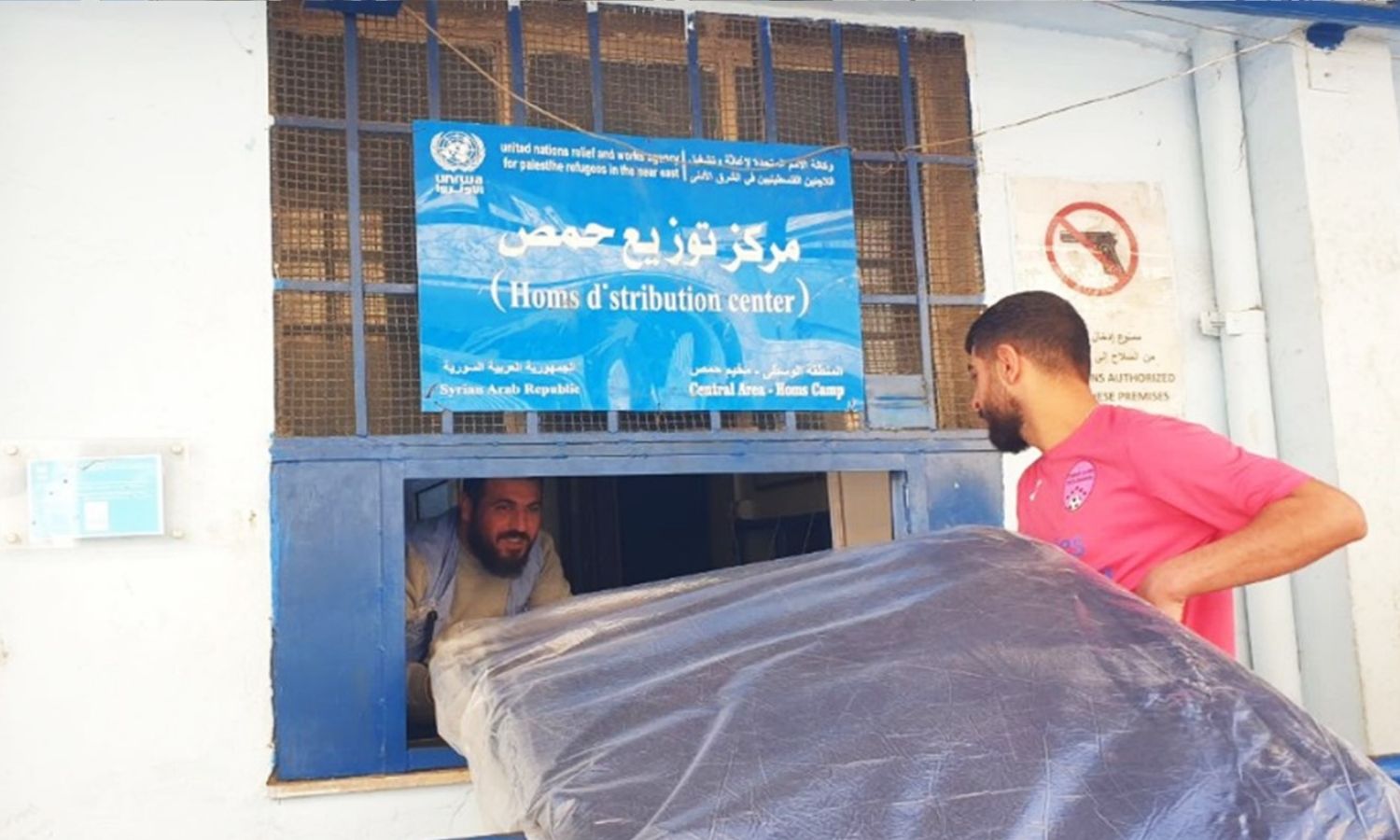The United Nations Relief and Works Agency for Palestine Refugees in the Near East (UNRWA) in Syria announced the services it provides for Palestinians who left Syria because of the war and now wish to return, though it emphasized that it does not encourage their return.
The agency said in a statement published on Thursday, 7 August, that the United Nations does not promote return to Syria but respects the individual decisions of Palestinians to return at a time of their choosing, and will support those who “make a voluntary and informed decision to return to Syria on their initiative.”
It added that returning Palestinian refugees must contact UNRWA to reactivate their registration or transfer their file to Syria from the country they are returning from.
Among the services UNRWA provides to returning Palestinian refugees are:
Health Care
Primary health services: consultations, medications, diagnostic tests (lab and radiology), referrals to hospitals and imaging services.
Disease prevention and control: detection and treatment of chronic diseases such as hypertension and diabetes; cancer medications (chemotherapy) and up to 75% subsidy for some drugs; screening for communicable diseases and measures to limit their spread.
Maternal and child care: family planning, pre-, during, and post-natal care, child growth monitoring, and immunizations.
Assistive medical devices: including hearing aids, prosthetics, and physiotherapy.
Oral and dental health: extractions, root canals, fillings, radiology, and preventive services for pregnant women, pre-school children, and exam-stage children.
School health: initial health checks for new students, screening for 4th and 7th graders, immunizations, dental care, deworming, prescription glasses.
Mental health and psychosocial support, including referrals to psychiatrists.
Routine immunizations.
Education
Basic education (grades 1–9) follows the Syrian curriculum.
Secondary education (grade 10 and above) within the general education system—available to registered Palestinian refugees with the General Authority for Palestinian Arab Refugees (GAPAR).
Psychosocial support.
Remedial classes and assistance programs to support returning students’ integration into the Syrian curriculum.
Children with disabilities unable to access UNRWA schools may be referred to the UNRWA Learning Support Centre in Damascus.
Social Services
Upon entry to Syria, returning Palestinians must go to the nearest UNRWA office with their UNRWA registration card to register their return and ensure inclusion in services. They can update civil events (births, marriages, deaths) via the UNRWA e-registration app (e-UNRWA).
Personal status events (births, marriages, divorces, deaths, etc.) can be registered with GAPAR, and UNRWA will provide legal aid when needed.
Additional services include:
Legal support (for documenting civil papers) and limited assistance with housing, land, and property cases.
Mental health and psychosocial support, awareness activities, rehabilitation services for persons with disabilities, developmental lessons for children with special needs, early childhood care, vocational training, and livelihood activities.
Multipurpose cash assistance, and limited food and non-food aid, depending on needs assessments and available funding.
Management of gender-based violence cases and child protection by UNRWA social workers.
Assistive devices for persons with disabilities, as needed and available.
Registration services to update UNRWA records and issue UNRWA registration cards for accessing services.
Awareness programs on protection from sexual exploitation and abuse.
Services for Camps
Sanitation services, including solid waste collection, disposal, disinfection, and sanitation in official Palestinian refugee camps.
Minor repairs to damaged shelters based on thorough socioeconomic and shelter condition assessments.
In Yarmouk Camp, UNRWA supports residents through minor repairs to shelters, with beneficiaries selected based on detailed assessments of their socioeconomic conditions and shelter status, depending on funding availability. The agency says it has rehabilitated its facilities in the camp—clinic, school, offices, and community centre—and cooperates with other UN agencies and stakeholders to improve conditions in the camp.
Neglect and Accusations
if you think the article contain wrong information or you have additional details
Send Correction
